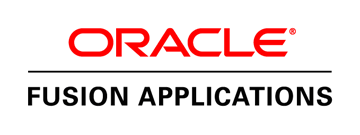Software Development Services
Quantam’s project expertise includes servicing a variety of organizations in both public and private enterprises across a number of industries. Our professionals are knowledgeable in ERP, CRM, SCM, COTs, custom framework application projects, and more. From client server projects to cloud based solutions, Quantam has you covered. Our professionals have extensive experience in modern Application Architectures like Service Oriented Architecture, as well as more traditional models like Enterprise Application Integration. Quantam’s professionals possess experience with development languages, such as Java and .NET Platforms, as well as with Open Source platforms. Quantam will also assist you with deciding what are the right tools for managing your application lifecycle.
Software Development Services
The goal of an application modernization project is to create new business value from existing applications. An application is a program designed to perform a specific function directly for the user or, in some cases, for another application program. Keeping legacy applications running smoothly can be a time-consuming, resource-intensive process, especially when the software becomes so outdated that it becomes incompatible with newer versions of the underlying operating system (OS) or system hardware.
Traditional methods for modernizing applications include rewriting existing application code written in dated programming languages to a more modern, Web-friendly programming language or placing a Web interface in front of an outdated application to salvage parts of the application that might still have value. The challenges in modernizing legacy applications come mostly from the fact that, in many legacy applications, the business process workflow is hardcoded and tightly coupled with other aspects of the legacy code.
Quantam’s modernization professionals utilize proven methods to evolve your existing systems allowing dated applications and systems to be updated to modern platforms and languages. Additionally, Quantam focuses on helping your organization implement a plan to retire legacy systems, servers, and other dated technology. It takes a substantial effort to move data off an old system, archive its data, and decommission the supporting infrastructure. It can be an arduous endeavor because of the lack of documentation or data, but the more legacy applications that are retired, the greater the cost savings is for your ongoing maintenance.
Examples of some of the modernization projects we have experience with are:
- Mainframe to Java/.NET migrations
- Backend database migrations
- Operating System Migrations
- Web-enabling of legacy Applications
Software Development Services
Quantam works with Waterfall, Agile, SCRUM, and various other forms of Agile with a primary focus of completing project on-time and on-budget. Waterfall is the more traditional approach to software development that includes a sequence of events, sometimes called a project stage, with each requiring finishes before the next one can begin. There is also typically a stage gate between each sequence of events; for instance, requirements must be reviewed and approved by the customer before design can begin. Conversely, Agile methodology is an alternative to traditional approaches. The Agile approach helps project teams respond to volatility through incremental, iterative cadences, known as sprints. SCRUM is another alternative to the Waterfall approach. SCRUM is part of the Agile movement that uses many standards of lean manufacturing. SCRUM has three project roles: Product Owner, Scrum Master, and Team. The responsibilities of the traditional Project Manager role in a Waterfall approach are divided among these three SCRUM roles.
Whatever approach your project utilizes, Quantam employs project teams knowledgeable in all the above methodologies. If you decide to implement one of the software development methodologies we’ve discussed — and you haven’t used it before — be aware that you’ll probably hit some bumps. This is because the Waterfall and Agile software development methodologies are completely different ways in which to visualize a project and work on it. Keep in mind that Waterfall isn’t the only software development process that uses a structured approach, so you may want to further research some less-common structured models. And if you decide to go with Agile, be sure to budget some extra time and consider bringing on team members who have experience with it.
Software Development Services
Quantam’s service offering is not limited to requirement gathering or application implementation. Quantam’s end-to-end service offering allows organizations to take advantage of knowledgeable professionals who can guide your project from just a concept all the way through maintenance and support. Quantam provides just some of the following services:
Conceptualization: Quantam helps your organization define a projects mission and visioning via structured sessions including project goal setting to alignment with organizational strategic planning.
Procurement Support Services: Quantam supplements your existing procurement resources or manages your procurement when procurement resources do not exist. Our professionals will guide your procurement to place requests for qualified vendor bids.
Requirement Gathering: Quantam via joint application design sessions, structured staff interview, and more. Our staff will track your requirements from creation to post-deployment.
Vendor Selection Support: Quantam including contractual guidance, oral presentation support, service-level agreements, and more.
Design, Development, and Implementation (DDI): Quatam offers full service software development professionals from design, development, and implementation to user acceptance. Since each of our professionals are skilled in multiple industries and products, Quantam possess both a broad set of technical expertise and the business acumen to ensure your application is designed to meet your needs.
Support maintenance and improvement services: Quantam can assist your organization with its maintenance and support needs. This perspective effectively changes the meaning of “support”, transforming an organizational mindset of maintenance support beyond a reactionary technical support model to a mindset built on sustaining and improving operational performance.


















